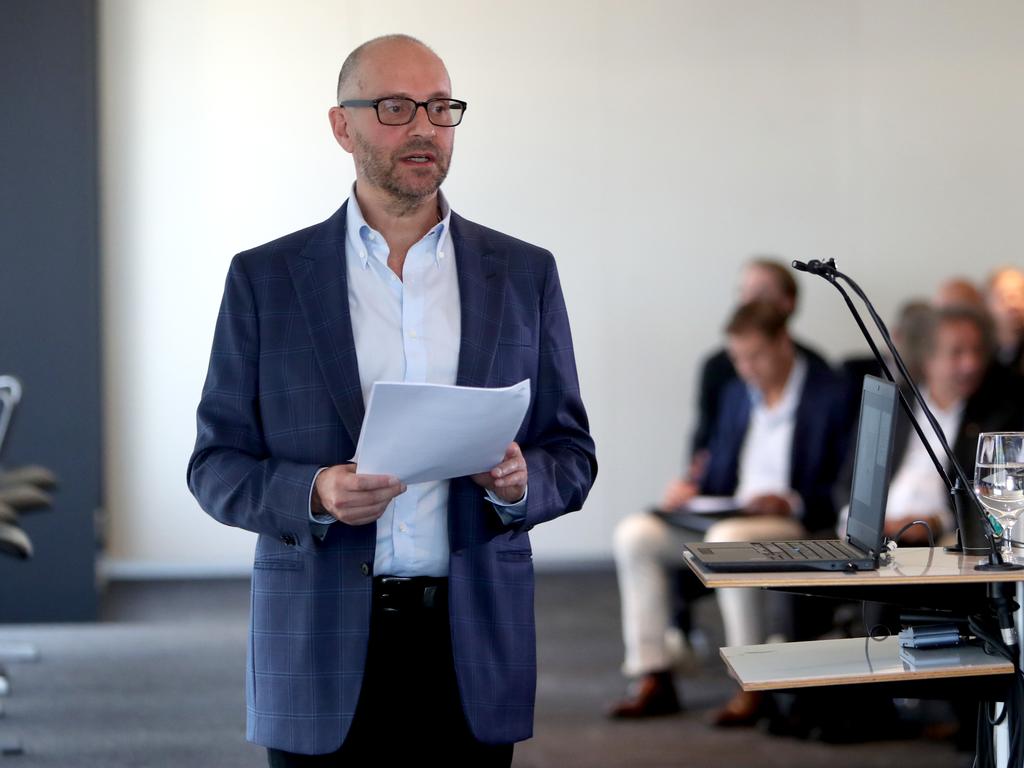Carlyle enters local private debt market with amicaa
The global buyout powerhouse is trying to raise money for the first of two funds which will provide loans to companies with near infrastructure-style returns.

Global buyout powerhouse Carlyle is joining the ranks of international players entering the local private debt market, announcing a venture with Australia-based credit investment firm amicaa.
Carlyle is the world’s fourth biggest private equity firm and yet – in sign of how quickly markets are changing – it last year earned more fees from the $143bn of private debt assets under management than it did from its traditional equity strategy.
The joint venture is in the market now trying to raise money for the first of two funds, being an open-ended core-plus fund paying 5 per cent above the bank bill swap rate, which will provide loans to companies with near infrastructure-style returns.
The venture’s second higher-risk Credit Opportunities fund will use funds provided by Carlyle and is targeting a return above 8 per cent and will provide loans for services such as mergers and company transformations.
Carlyle Global Credit managing director Taj Sidhu said private debt is the firm’s fastest growing business and the firm sees strong opportunities in this market.
“It will be significant,” Mr Sidhu told The Australian.
“Whether it’s five, ten or 15 per cent of our total business, who knows, but on the question of is there a scalable business model, we think the answer is yes.”
The US-based deal making giant joins a long list of players entering the market here. Ares Management, Partners Group, and LGT Group, owned by one of the world’s richest royal families are among those already operating out of Australia.
The global buyout firms are seeing increased opportunities here because the big four banks have reined in corporate lending since the global financial crisis, and further crimped lending following the financial services royal commission. Private equity firms often prefer the speed and tailoring they can get from private credit over banks in any case.
Australia’s superannuation firms control $3.4 trillion of assets, and managers of these funds are also investing in private debt as they have almost the same funds available to the banks and none of the same restrictions around capital requirements.
On a return basis, private debt can offer better returns, albeit at a higher risk and with less liquidity than traditional fixed income securities, because they are usually ‘floating rate’ with short durations compared with bonds.
Amicaa co-founder David Hoskins said that his company has strong ties already with the super funds and will be talking to them about providing capital for the core-plus fund.
“We have a unique offering and have already raised billions of dollars in private debt,” through former roles, such as at CIP Asset Management, owned by Challenger, Mr Hoskins said.
The increased profile on private debt comes as private equity deals look set to fall on the back of falling stock valuations, rising inflation and interest rates and the uncertainly caused by the Russian invasion of Ukraine.
Mr Sidhu said the strong move by corporates away from bank lenders that’s already happening offshore will happen in Australia and New Zealand too.
“This is an attractive investment opportunity … it’s a strategic priority for us,” he said. “It’s already our fastest growing strategy and we are looking to grow it.”
Mr Sidhu said the market has seen 17 per cent compound growth globally over the past five years and will double again to US$3 trillion ($4.3 trillion) over the next five years.
In the US, about 80 per cent of corporate finance lending for non-rated or below investment grade companies is done through non-bank lenders. In Europe the market has shifted since the financial crisis from 90 per cent bank lending to a 50/50 split between banks and non-banks.
In Australia and New Zealand, where the venture will operate, the first steps will be “diversified opportunistic private debt investments” rather than sector specific funds or a sustainability-linked private debt program such as the one Carlyle has started in the US.
Carlyle will still consider all investments “through and ESG lens” said Mr Sidhu. “We see a multi-billion dollar opportunity to deploy capital in Australia and New Zealand,” he said.








To join the conversation, please log in. Don't have an account? Register
Join the conversation, you are commenting as Logout